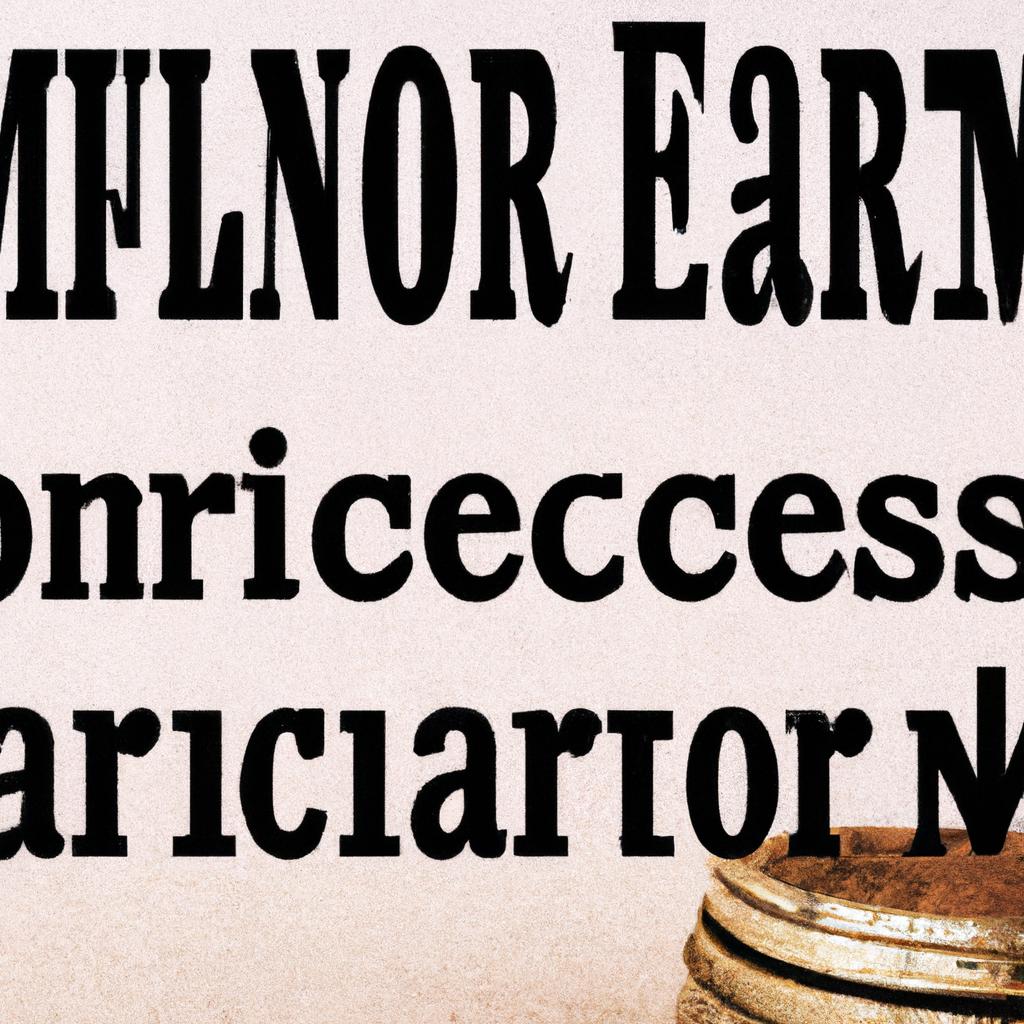As seasoned practitioners in the realm of estate administration, we are often met with the query: does the executor of an estate receive compensation for their duties? In the labyrinth of legal intricacies surrounding probate and testamentary dispositions, the issue of executor compensation is a pivotal concern. Join us as we unravel the mystery and shed light on the nuanced principles guiding the compensation of executors in matters of estate administration. Welcome to Morgan Legal Group, where we navigate the complexities of estate planning, probate, elder law, Wills, and trusts with precision and expertise.
Understanding the Executor’s Role in Estate Administration
When it comes to the executor’s role in estate administration, one common question that often arises is whether the executor of an estate gets paid. The answer to this question is not a simple yes or no, as it largely depends on the specific circumstances surrounding the estate in question. Here are some important factors to consider when determining whether an executor is entitled to compensation:
- State laws: The laws regarding executor compensation vary from state to state. Some states specifically outline the compensation that an executor is entitled to, while others allow for the compensation to be determined based on the size and complexity of the estate.
- Will provisions: In some cases, the deceased individual’s will may include provisions for the executor’s compensation. It is important to review the will carefully to determine if this is the case.
- Agreement with beneficiaries: In certain situations, the executor may come to an agreement with the beneficiaries of the estate regarding their compensation. This should be done carefully and with the guidance of legal counsel to avoid any potential conflicts.
Ultimately, whether an executor of an estate gets paid is not a straightforward matter and may require careful consideration of various legal factors. If you have questions about executor compensation or any other aspects of estate administration, it is always advisable to seek the guidance of an experienced estate planning attorney to ensure that your rights and obligations are properly protected.

Compensation Guidelines for Executors
Handling the responsibilities of an executor can be a daunting task, requiring significant time and effort. One question that often arises is whether an executor is entitled to compensation for their services. The answer to this question can vary depending on the circumstances and the laws of the state in which the estate is being administered.
Under New York law, executors are typically entitled to compensation for their services unless the will specifically waives this right. The amount of compensation is usually based on a percentage of the value of the estate, although it can also be a flat fee or an hourly rate. It is important for executors to familiarize themselves with the compensation guidelines in their state and to ensure that their compensation is both fair and in accordance with the law.

Determining Fair Compensation for Executors
When it comes to of an estate, there are several factors to consider. Executors play a crucial role in the administration of an estate, and it is essential that they are fairly compensated for their time and efforts. Here are some key points to keep in mind:
- State laws: Each state has its own laws governing executor compensation. It is important to familiarize oneself with the laws in the state where the estate is being administered.
- Complexity of the estate: The complexity of the estate can impact the amount of work required of the executor. More complex estates may warrant higher compensation.
- Relationship with beneficiaries: Executors who are also beneficiaries of the estate may face additional scrutiny when it comes to their compensation. It is important to maintain transparency and communication with all parties involved.
| State laws | Each state has its own laws governing executor compensation. |
| Complexity of the estate | The complexity of the estate can impact the amount of work required of the executor. |
| Relationship with beneficiaries | Executors who are also beneficiaries of the estate may face additional scrutiny when it comes to their compensation. |

Recommendations for Executors Seeking Compensation
If you are an executor of an estate, you may be wondering about the possibility of being compensated for your services. While serving as an executor can be a time-consuming and demanding role, it is important to understand that compensation is not guaranteed. However, there are certain circumstances in which an executor may be entitled to compensation. Here are some :
- Review the Will: The first step is to carefully review the Will to see if it includes provisions for compensating the executor. Some Wills specify a fee for the executor, while others may leave it up to the discretion of the court.
- Keep Detailed Records: It is crucial to keep detailed records of all time spent and expenses incurred while carrying out the duties of the executor. This documentation will be essential if you need to justify your request for compensation to the beneficiaries or the court.
Q&A
Q: Does the executor of an estate get paid for their services?
A: Many people are unclear about whether or not the executor of an estate is entitled to compensation for their role in handling the deceased’s affairs. Read on to find out the answer.
Q: What factors determine whether an executor can receive payment?
A: The compensation given to an executor typically depends on the laws of the state where the estate is being administered, as well as any provisions outlined in the deceased person’s will.
Q: How much can an executor expect to be paid?
A: The amount an executor can receive varies widely depending on the size and complexity of the estate, as well as the executor’s level of involvement and responsibility. In some cases, they may be entitled to a percentage of the estate’s assets.
Q: Can an executor waive their right to compensation?
A: Yes, an executor can choose to decline payment for their services if they so wish. This decision should be communicated clearly to all parties involved.
Q: Are there any potential conflicts of interest in receiving payment as an executor?
A: If an executor stands to benefit financially from their role in handling the estate, it could potentially raise concerns about their impartiality and decision-making. It is important to proceed with caution and transparency in such situations.
Q: What should someone consider before agreeing to serve as an executor?
A: Before taking on the responsibility of being an executor, it is crucial to have a clear understanding of the potential compensation, duties, and legal obligations involved. Consulting with a legal professional can help navigate any uncertainties.
Closing Remarks
In conclusion, the question of whether an executor of an estate gets paid is one that varies depending on the circumstances and the laws in place. While some may receive compensation for their time and efforts, others may choose to serve out of a sense of duty or honor. Regardless of the financial aspect, being an executor is a significant responsibility that should not be taken lightly. If you find yourself in this position, make sure to familiarize yourself with your rights and responsibilities before taking on the task. Ultimately, the decision to accept payment or not is a personal one that should be made thoughtfully and carefully.


